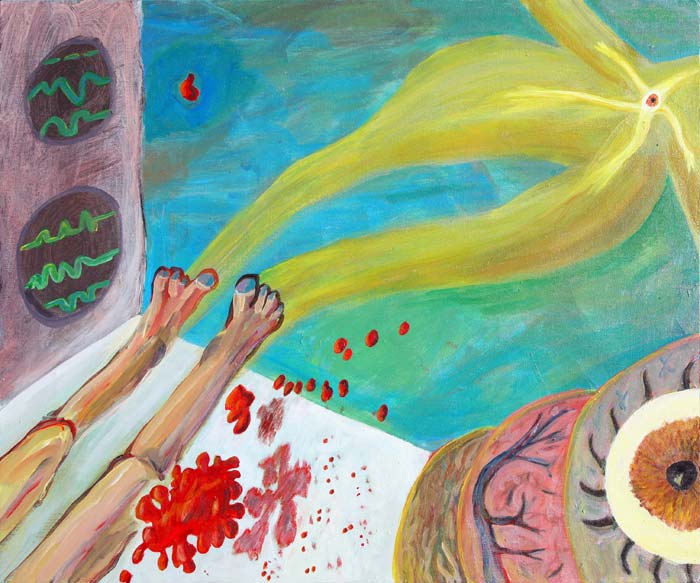
The Loa and the Gaping Jaw
by Brendan Byrne

The ship is just far enough offshore that its occupants cannot be seen. It belongs to one of those mammoth cruise lines that used to make their annual winter pilgrimages down from the Northeast, carrying loads of the comfortable, aging middle-class of America. If you believe what people say, there are others just like it littering the entirety of the Haitian coast: oil tankers, cargo ships, UN transport vessels, fishing crafts far adrift from their home ports. Boyer, who swam half-way out, says there is another one past it, just beyond the horizon: a massive, rusted container ship resting there in the Golfe de le Gonâve.
It is amazing, Simone thinks, that none of them have run aground on an island as large as ours, that a people as populous as ours should be, so far, safe. After all, it has been over a week. What she has gleaned from CNN and the BBC likens the plague to a brushfire, crossing miles quickly and carelessly. The island of Hispaniola has avoided the first wave, and, odder still, it appears to be alone in that distinction. Still, she supposes, it is only a matter of time. The ship is just far enough offshore than its occupants cannot be seen, but in the quiet of the evening, over the gentle lapping of the waves, they can be heard.
“It is not the same thing,” says Dupont, playing idly with a little lizard that has run up his leg to his bare knee.
Boyer merely blinks.
“It will not help you.” Dupont carefully removes the lizard from his knee and places it on the sand.
Simone leans slightly in. “Monsieur Dupont. Please.”
Dupont regards Simone as a breath of breeze plays with her hair. “It was time for the mid-day meal,” he begins. “I found myself listless. Not hungry. Upon setting back to work in the fields, I found it difficult to breathe. I became exhausted. I was strong man, almost never sick, back then.” Dupont gives a little smile, his eyes tracing the ground before him. “Because of my pride I kept working until I collapsed. They took me inside my sister’s hut, where I lay, unable to speak. Many thought it was fever, until a man who had been to Port-au-Prince said he was sure it was AIDS. After that, the hut emptied out except for my sister and her husband. I soon found myself completely paralyzed. I was there when they pronounced me dead. I do not remember the funeral. I do not remember receiving this scar.” Dupont points to the large, hairless gash running from the edge of his right eye down the side of his skull. “A gift from one of the coffin’s nails. When I woke, I was already buried, and I was floating above my grave. The bokor had called my soul. They dug me up, beat and bound me. They marched me to a large plantation near Saint-Claire, which is a tiny village near Hinche, almost to the border. There I worked for nothing every day for almost three years. We tilled the fields; we fixed the grounds. We were fed once a day. Everything was squashed and dream-like. I did not know my name. I could not speak. I could not make choices. I do not know why, but after the first five years, the bokor became more vicious. He beat us more often and more violently. During one of these beatings, one of my fellows snapped and ran the bokor through with a broken tree branch. We were all shocked. With the bokor dead, his power passed from us, and we were free. I wandered, mostly around the North, until I spoke with the American who took my story.” He gives Simone a small smile, then looks around for the lizard, which is nowhere to be seen.
“Why didn’t you go home?” asks Simone.
Dupont looks slowly up the rise of the sand bank to where the village of his birth lies. “It was my brother who sold me to the bokor. We were having a dispute over my land. I was too afraid to return.”
“And now?” asks Boyer in his brusque Yankee’s Creole. The words are the first he has spoken in almost an hour. His hands are cupped before him.
Dupont shrugs. “He is dead.”
“You were dead too,” says Boyer.
Dupont’s eyes are murky like the waters of a fetid well. “It is not the same thing,” he says. “It will not help you.”
Boyer looks to Simone, and she stands, brushing the sand off her black jeans. “Thank you, monsieur, for you help. I regret if we caused you any discomfort.”
Dupont nods. “Mademoiselle.”
Boyer stands, uncupping his hands, and tosses the small lizard to Dupont, who catches it.
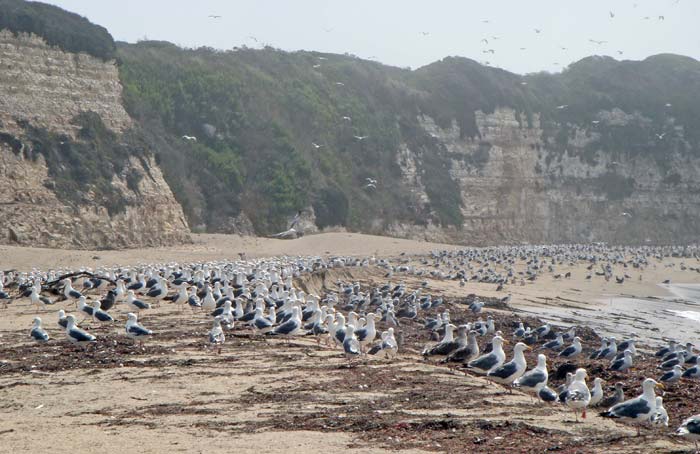
The children watch Simone. She is barely seventeen, dressed in a white t-shirt; she braids her hair into a simple plait as she walks. She could neither be a tourist, nor a villager, nor an authority from Port-au-Prince. She moves regally, and one young boy is reminded by her stride of the houngan. She and Boyer find a bit of shade in the shadow of a hut whose occupant sells them a bottle of rum. Boyer, switching to his Parisian French, asks her what she thinks.
“He was nothing like the ones I saw,” Simone says, nestling against the thatch wall. “Physically, of course, they all looked as different as mankind can come. But they staggered, poorly coordinated, their faces palsied and fierce. Monsieur Dupont was all simplicity and slowness, but he was deliberate. Though their limbs were too atrophied to bear their intentions, they were all haste.”
Boyer lights a cigarette and allows his eyes to wander around the immense, empty sky, pointless point to pointless point. He is white, the only white for fifty miles in any direction probably. He is dressed in khaki pants and a muddied white t-shirt with a torn and twisted plaid collared shirt thrown over it. With his weathered backpack and his eight day’s beard, he could be easily mistaken for a visiting professor, perhaps an anthropologist or a ethnobotanist but for his economical motions and dead, blank eyes.
Simone breaks him out of his reverie by flicking her fingers at him. He extends the pack to her, and she smiles, taking a cigarette.
“Do you believe in voudoun?” Boyer asks, as he lights her cigarette.
“I serve the loa,” Simone replies before sucking the smoke down into her lungs.
“But you are a Catholic, no?”
Simone smiles again. It is dangerous how innocent and expensive she appears when smiling, Boyer thinks. It is the smile of a girl who, until very recently, attended one of the most expensive boarding schools in the English-speaking world, who discussed international affairs with ministers of state over tea at LSE, and who would come home to her father’s ceremonies to let the loa mount her. There she would frenzy: dance like one seizures, eat glass, and walk on fire. Yet it was still the smile of a young girl enjoying an illicit cigarette.
“There is a saying amongst my father’s circles in Port-au-Prince,” she says, allowing herself only the slightest flinch when she says the word ‘father,’ “Haiti might be eighty percent Catholic, but it is one hundred and ten percent voudoun. You have seen me dance. Why would you ask me such a question?”
“I was married for six years,” Boyer says, “And twice weekly my wife and I would rise early and make the hour and ten minute drive to the church. The ceremony was Russian Orthodox; it was two and half hours long at it’s most succinct. We stood the entire time.”
“And you could not understand Russian.”
“Oh no,” Boyer says. “I speak Russian fine. But I did not believe a word of the Russian I heard. I went through the motions, as we Americans like to say, but I did not believe. Love, especially familial love, can make one do things that might otherwise be considered insane.”
Simone holds his gaze for a moment, still smiling, smoke leaking from her nostrils. “I only saw them once, in London,” she says. “Briefly, while in the helicopter. Hundreds of them were on one block. Several were eating. There was no method: for walking, for trafficking themselves, for feasting. They had no direction. They could not have been under the power of any bokor.”
“So you believe,” Boyer says, slowly grinding out his cigarette in the dirt. “That there are no similarities between the zombis of the voudoun and the things that wait,” he says with a nod of his forehead, “Not half a mile to our west?”
Simone draws her knees up to her chest. “I believe neither are alive.”
They sit in silence. Simone’s cigarette burns down to the filter, and they watch the ember die.
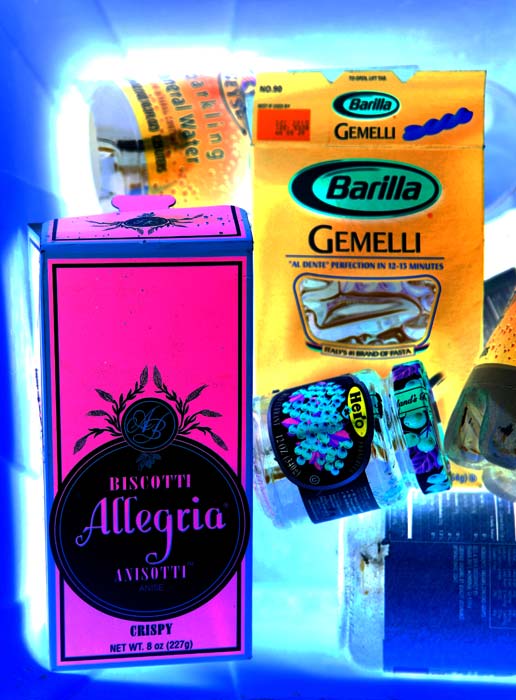
They move south. Simone insists on driving the ancient jeep, and she speeds over the humps and gouges in the road with a silly grin. They pass from the lush valleys where several lakous rest into the arid man-made desert that is most of the island. “I tried to talk to some of the villagers while you were off getting rum,” Simone says, holding out her hand for the bottle.
“Yeah.” Boyer answers her without taking his eyes off the sky, his hands still clasped around the rum.
“They wouldn’t talk to me,” Simone says, yanking the bottle out of Boyer’s hands. “They called me a mulatto.”
“You’re a mulatto?” Boyer says, still not looking at her.
Simone shakes her head. “No. They meant... socially.”
Boyer slowly turns to look at her. He is wearing thick, heavy sunglasses, the kind that went out of style in the states about twenty years ago; Port-au-Prince’s market had been full of them.
“They wouldn’t talk to me,” Simone says, tilting back the bottle and slurping a long drab of deep black rum. “But I can almost guarantee you what happened. Dupont said he had a dispute with his brother over land. This was in... 1981, right? Haiti was still governed under the Napoleonic code. When the father dies, the land is split evenly between the brothers. I would wager that the ‘dispute’ in question was Dupont holding back on his brother.” She swerves to avoid a dead dog.
“He admitted as much,” Boyer says, keeping his eyes on the dog’s corpse as they accelerate away from it.
“No.” Simone shakes her head. “He didn’t tell you why. All the stories I’ve heard of zombification, whether from my father, my grandmother or the local gossip, have all had one thing in common. All those changed into zombis have been, if not criminals, then in some way social outcasts. Thieves, bastards, bitches. People the community has wished to rid itself of.”
Boyer braces himself between the seats as the jeep takes a jump; he watches Simone ride easy with it, barely moving an inch.
“Sorry,” Simone says. “Another dog. Remember the TonTon Macoutes. They were widely believed to be zombis, and they wore their famed dark glasses to accentuate the sense of the inhuman. Duvalier was the biggest bokor of them all. In Port-au-Prince, in Saint-Marc, there might be police, there might be armed guards. But this is the true government of Haiti.”
“You’re saying this was an attempt at justice,” says Boyer, lighting her a cigarette.
“Attempt? No. It was authentic justice.”
Boyer furrows his brow and takes the bottle away from her.
Simone, her eyes on the road ahead, tsks. “Reserve your first world bullshit,” she says. “Does any man deserve to have his name taken from him? To be buried alive and turned into a slave? I don’t know. Does any man deserve to waste away in prison or be injected with sodium thiopental? I don’t know that either. Voudoun is order. For all that it is worth.”
“And the plague,” says Boyer, playing idly with his lighter, “That’s come to the rest of the world. That is anarchy?”
“Yes,” says Simone.
“Then why,” Boyer asks, “Are you here?”
Simone doesn’t take her eyes off the road. “My father is dead.”
Boyer looks up to the sky. After a long time, he says, “You don’t have to come. I understand the situation well enough now. I doubt I’ll need much more aid.”
“You think all this will really help?” Simone says. She titters slightly. “Some kind of cure?”
Boyer’s fingers trace the curve of the bottle’s lip. “You don’t have to come.”
Simone swerves the jeep again. She does not look to the side of the road. “Where else would I go?” she asks.
The branches of the trees along the roadside scrape the windshield of the jeep like hands.
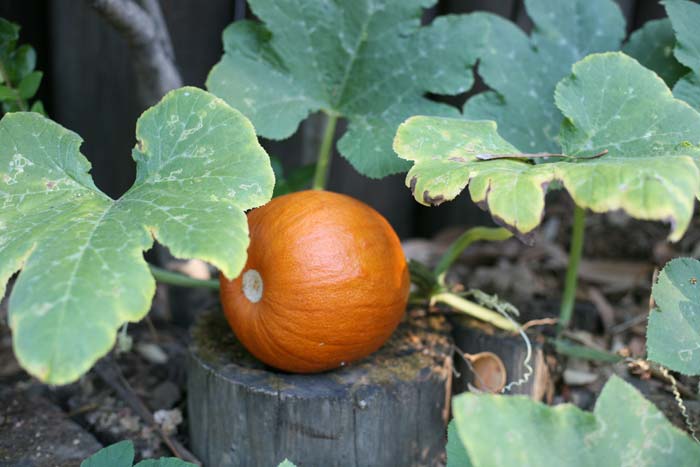
Near Saint-Marc, a collection of two dozen villas command a high mountain. Tucked into the bush, Boyer spends almost half an hour with his clothing, toiletries, and hair gel. When he is finished, his beard is gone and his cheeks are flush with a ruddy youth Simone’s not expecting. He puts on a well-tailored, though fairly rumpled, suit. He takes a slug of rum, then offers the bottle to Simone, who accepts. They set out towards the villas, just a blanc out for a midnight stroll and fuck with the local village meat.
It is a tense, quiet walk in the dark towards the flood-lit fifty-foot radius around the villas, a proper killing zone. When they step across into the light, Boyer slips his arm around Simone and pulls her close to him, smiling sickly and pretending to whisper deep fuck-talk into her ear. As they pass the first couple of villas, a few guards snicker.
Boyer keeps his hand underneath Simone’s dress; she feels it cold, clenched and hard. Though Simone imagined this part of the charade would be the easiest for him, there is fierce color in Boyer’s cheeks, making him look boyish and shameful.
To distract Boyer from himself, she says, “Baron Samedi is the loa of the graveyard, not to mention fertility. He is usually portrayed as a wizened old man, decked out in a top-hat, tuxedo and dark glasses, clenching a cigar in his gleaming smile. His face is always white; often his head is a skull. He is a fierce and boisterous trickster spirit, constantly amused by man’s preoccupation with rutting and dying. I don’t know if I can convey how insulting it is that a man has taken his name.”
Boyer says nothing, clumsily lighting a cigarette.
“My father had little to do with this human Samedi, other than the occasional exchange of harsh words. My father might well have been considered a bokor by many in Port-au-Prince, but he was not. He was a houngan who had to straddle polite, Westernized society and the beliefs of his people. If there are those that considered him to be a self-promoter and cheap mystic, I don’t mind, they can go fuck themselves. But this phony Samedi is everything my father was not,” Simone says, spitting the words. “A bad imitation of a black magician. A bokor with no people and a political agenda. I do not rightly know if he has any true power.”
“He has,” says Boyer, his voice a child’s whisper.
Simone does not ask him how he knows.
The villa before them is slight, compared to the three they passed and the others before them. It is built into the rock of the mountain, and its architecture is clearly patterned after a peasant hut: fine wood cut to look like daub and thatch walls. Boyer stalks around the house, then spends twenty seconds with a lockpick, and the door is open.
The first room is a kitchen, small, tidy and smelling distinctly of bleach. They walk through a small hanging curtain into a larger living room, thickly carpeted.
This Baron is not like his name-sake. He is tall, thin and balding, with a long face. He wears kente cloth loosely around his frame, and he sips a small cup of coffee. He looks to them when they enter and opens his mouth. Boyer draws a stubby silenced pistol from the folds of his rumpled suit and shoots the Baron once in the head and once in the right lung. As the tall man collapses, Boyer strides to him, drawing a ten inch Bowie knife from his belt. He kneels to the twitching body and drives the knife into the Baron’s heart. The Baron’s head jerks up, the strain showing the outlines of his skull, making him, finally, resemble his patron loa. Boyer jerks the knife out of the Baron and in the same fluid motion, severs the man’s head from his body. The head rolls lazily across the carpet, until the heavy shag stops its momentum. Boyer stands up, his young face and nice suit saturated with blood. Boyer looks from the body up to her, as if just remembering she was here. “I apologize,” he says, thickly.
Simone has both her hands around her throat. She makes a short, cut-off noise.
Boyer gingerly steps away from the blood, taking off his suit jacket. “Simone. I want you to consider something. Your island is the poorest place in the Western Hemisphere. It has been enslaved, pillaged, and raped by Spain, France, America, England, and Germany since its so-called discovery.”
“I am aware,” says Simone, her throat crackling and her face slack. “Of my history, yes.”
“You are aware, then,” Boyer says, stripping off the disposable plastic gloves Simone had not seen him put on, “That the process of zombification directly resembles what happens to a slave: the loss of identity, being owned, the forced labor. Some anthropologists see a direct psychological link between Haiti’s colonial history and the zombi-phenomenon.” He kicks off his soaked shoes.
“Horseshit,” says Simone in her best English.
“Yes, well, probably,” says Boyer, ripping his tie off and tossing it on top of the Baron’s chest. “And you are also aware that Hispaniola is the only major landmass in the Western Hemisphere, and perhaps, who knows, the whole world that is not stricken with this plague of zombis?” Boyer takes off his white collared shirt, rorsached with blood and tosses it at his feet, leaving an unbesmirched t-shirt underneath.
“You didn’t come here for a cure,” Simone says.
Boyer shakes his head, taking off his pants carefully, so as to not get blood on his hands. He wears shorts underneath. He steps onto the couch, then climbs over it so that he is only a foot away from Simone. She flinches back. “I didn’t come here for a cure, no. Nor did I come here to figure out a way to stop these marauding things. What their ‘secret weakness’ is.” He laughs lightly. “Why bother? All of North America is gone. Most of South America as well. Europe, Russia, and China didn’t look so great last transmission I saw. What would a cure do? Who would it save?”
“Us,” Simone says.
Boyer shrugs. “Perhaps. But the plague isn’t coming here.”
“It is not the same thing as zombis.”
“But it is.”
Simone looks into Boyer’s eyes, and they are alive and alight for the first time she has ever seen. “This is Haiti’s vengeance,” he says.
“And you are America’s vengeance,” Simone says.
He nods the once, only slightly. “I will find the houngan, the bokors, anyone powerful enough to have crafted this. And I will kill them.”
Simone wraps her arms around her stomach and squeezes.
“I’m sorry you had to see this,” he says. “I needed you.”
Simone coldly shakes her head, but Boyer is concentrating on his next cigarette. “Thank you,” he continues. “You helped me understand everything so much better.”
“You understand nothing,” she says, her gaze drifting to the ground. “Absolutely nothing.”
Boyer slowly works the spit around his mouth. “I’m sorry you feel that way. Let me at least drive you somewhere. You shouldn’t stay here.”
She shakes her head again.
“Well,” he says, reaching towards her. She jerks away from his touch. “Thank you. And, well, I apologize.” He cocks his head like a bird, trying to look into her face, but she hunches away from his gaze. He straightens up and turns to go.
“Blanc,” she says, and he stops. “You still have blood all over your face.”
While Boyer hunches over the sink, slopping water and soap, she walks silently over to the counter where the Bowie knife lays. She picks it up, hefting its weight. She closes her eyes and says a prayer to her father.
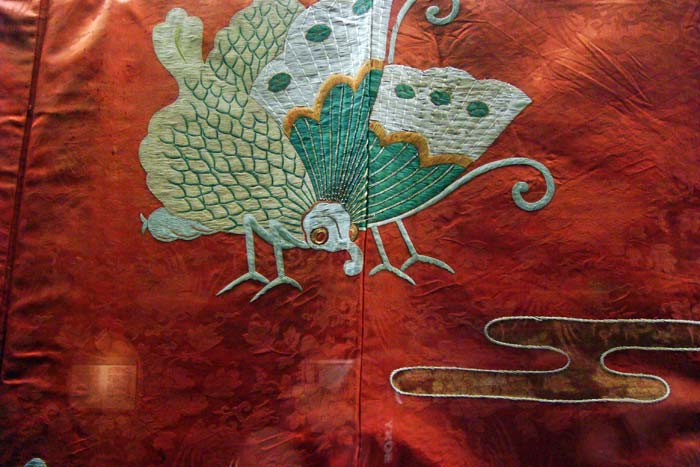
The ship is no closer to the shore than before, but the winds lash harder now, and sound carries better. A low, dumb moan permeates the beach; none of the villagers will go there unless they absolutely have to. Over a languorous week, Simone talks with Dupont about his time in the grave. He tells her of the unmistakable feeling that he was about to disembark on a journey. How his spirit did indeed travel over this land, from the heights of the North to the waters of the Canal de Sud, and he, freed of time, understood his island, his people, his world. They do not speak about the bokor calling him back into his body or the events afterwards. With his eyes closed, the sun cracking his skin, and the country’s smallest smile on his face, Dupont does not resemble a living thing, but a golem built from earth, and it is true that when he opens his eyes, and Simone looks into them, she sees nothing whatsoever.
The local société holds a Rada ceremony later in the week, and the houngan invites Simone. There is much anticipation. In last fifty years, the great loa: Erzulie, Ogoun, Pappa Guede, Damballah, Simbi, Agwe´, Legba, Loco and Ayizan have mounted fewer and fewer. There is an expression among the servants of the loa: ‘Great Gods cannot ride little horses.’ But over the last week, there have been more mountings of great loa than in the last three years. Ogoun mounted a small boy only yesterday, a terrifying occurrence, as the young one insisted on balancing his body on the point of a machete driven into the ground.
Simone stands in the peristyle with the others, watching the houngan draw Legba’s vever, the crossroads, on the ground with flour. She is already moving with the off-beat of the ceaseless drums, her arms and hands whipping slightly. The la-place brings the houngan a pair of live cocks, one white and one dark. The houngan takes them, and while the la-place scatters feed on the vever, the houngan traces an elaborate crossroads in the air about him with the fluttering, squawking cocks. Then he brings them down to the vever, their beaks directly over the feed. It is not until the cocks eat the food that they will become identified with Legba and may be sacrificed to him. The cocks squawk, their eyes drawing on the feed.
All wait.
About the Author
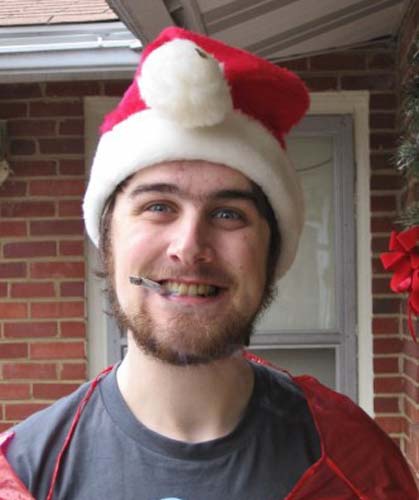
Brendan Byrne was born in the District of Columbia in 1982. He lives in New York City and almost has a degree in somethingorother from Hunter College. He tends bar until such time as his body learns to photosynthesize.
Post a comment on this story!